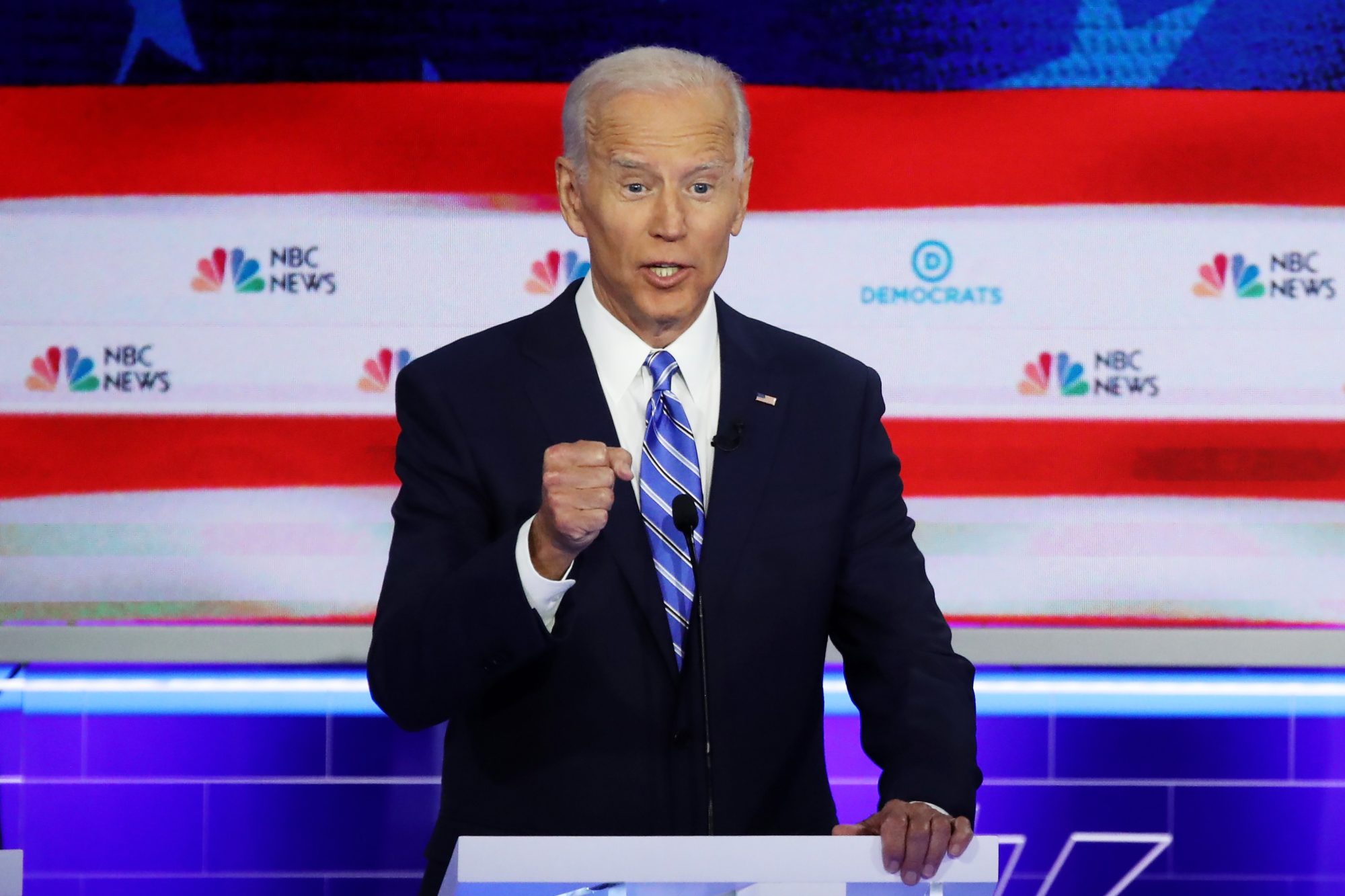Someone Tell Joe Biden: Marijuana Is Not a Gateway Drug
Biden believes that the jury is still out on the question of whether marijuana is a gateway to other illicit substances. But the truth is that it is not—and this has long been a matter of settled science.

Democratic presidential candidate Joe Biden believes that the jury is still out on the question of whether cannabis is a “gateway” to the use of other, potentially more dangerous controlled substances. Speaking at recent town hall event in Las Vegas, he opined, “The truth of the matter is, there’s not nearly been enough evidence that has been acquired as to whether or not it is a gateway drug.” The truth, however, is that this has long been a matter of settled science.
Beginning with the LaGuardia Committee Report on Marijuana in 1944, scientists have consistently debunked this claim. Authored by experts affiliated with the New York Academy of Medicine, the Committee concluded, “The use of marijuana does not lead to morphine or heroin or cocaine addiction and no effort is made to create a market for these narcotics by stimulating the practice of marijuana smoking.”
Decades later, this initial conclusion was reaffirmed by investigators with the National Academy of Sciences in their 1999 report Marijuana and Medicine: Assessing the Science Base. It determined, “There is no conclusive evidence that the drug effects of marijuana are causally linked to the subsequent abuse of other drugs.”
Yet another study, published by scientists with The RAND Corporation and entitled “Reassessing the Marijuana Gateway Effect,” reported, “[M]arijuana has no causal influence over hard drug initiation.” Authors concluded: “While the gateway theory has enjoyed popular acceptance, scientists have always had their doubts. Our study shows that these doubts are justified.”
Empirical experience also questions the validity of the gateway claim. For example, despite the recent rise in adults’ consumption of marijuana in past years, nationwide use of most other illicit substances, particularly cocaine, has fallen dramatically.
Even more notably, several recent studies indicate that cannabis and its compounds may potentially mitigate cravings for other drugs – making marijuana a terminus, not a gateway. For instance, a British clinical trial determined that the use of CBD was associated with significant reduction in subjects’ desire to smoke tobacco cigarettes. A 2017 Canadian trial published in the journal “Addictive Behaviors” concluded, “[S]elf-reported intentional use of cannabis … was associated with subsequent periods of reduced use of crack [cocaine].” And most recently, researchers at The Mount Sinai Health System in New York City concluded that the administration of oral CBD reduces cue-induced cravings and anxiety in subjects with a history of heroin use. In states where medical cannabis access is legal, chronic pain patients consistently report mitigating or eliminating their use of opioids following their initiation of marijuana therapy.
In fact, today even the US National Institute on Drug Abuse acknowledges, “[T]he majority of people who use marijuana do not go on to use other ‘harder’ substances.” In truth, most people who experiment with cannabis cease their use of it by their late-twenties, typically as they enter the workforce, get married, and begin to raise a family.
Of course, a small percentage of cannabis consumers do eventually go on to use other illicit drugs. But in these instances experts generally identify ‘environmental circumstances,’ not the preceding use of cannabis, as the primary reason for this transition. As acknowledged by the Netherlands Institute of Mental Health and Addiction:
“As for a possible switch from cannabis to hard drugs, it is clear that the pharmacological properties of cannabis are irrelevant in this respect. There is no physically determined tendency towards switching from marijuana to harder substances. Social factors, however, do appear to play a role. The more users become integrated in an environment (‘subculture’) where, apart from cannabis, hard drugs can also be obtained, the greater the chance that they may switch to hard drugs. Separation of the drug markets is therefore essential.”
Or, to put it another way, permitting marijuana sales to be regulated by licensed, state-authorized distributors rather than by criminal entrepreneurs and pushers of various other illicit drugs would likely result in fewer, not more, Americans abusing other illicit substances – a fact that most of Biden’s Presidential contenders, almost all of whom favor legalizing the plant, seem to already be well aware of.
Paul Armentano is the Deputy Director of NORML — the National Organization for the Reform of Marijuana Laws. He is the co-author of the book, Marijuana Is Safer: So Why Are We Driving People to Drink? and the author of the book, The Citizen’s Guide to State-By-State Marijuana Laws.
